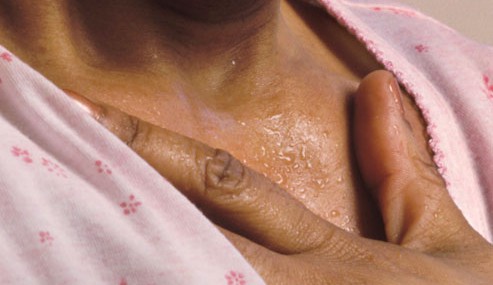
No woman looks forward to menopause, especially the accompanying hot flashes. Typically, women have been told that menopausal symptoms may last a few years before subsiding. But a new study published in JAMA Internal Medicine found that hot flashes can last up to 14 years — and that the earlier they start, the longer they may last. The median time a woman experiences hot flashes is 7.4 years, so the thought of enduring them for nearly twice as long isn’t exactly welcome news.
The Study of Women’s Health Across the Nation (SWAN) is a multiracial/multiethnic observational study of the menopausal transition among 3,302 women enrolled at seven locations across the United States. African-American women had the longest-lasting hot-flash symptoms with a median of 10.1 years, which was nearly double that of Asian women; the median number of years for Hispanic women was 8.9, while for non-Hispanic whites it was 6.5.
What causes the observed racial variation in median symptom duration could be anything from genes and diet to how many kids a woman has had, study co-author Dr. Nancy Avis told the New York Times. Those who have the flashes for longer also tend not to have lower educational attainment, to have more perceived stress, and to experience more depression and anxiety (though it’s not clear if such stress and emotional problems may trigger hot flashes or if the hot flashes help bring those on).
The researchers also found that the earlier a woman began experiencing hot flashes, the longer they were likely to continue. Women who experienced hot flashes before they stopped menstruating were more likely to continue for years after menopause. “If you don’t have hot flashes until you’ve stopped menses, then you won’t have them as long,” Dr. Avis told the Times.
There are ways to alleviate symptoms, Dr. Avis points out: A woman in perimenopause (before menstruation fully stops) could take low-dose versions of birth control pills or even certain antidepressants. While hormone replacement therapy (HRT) has been used for menopausal symptom relief, research has linked the treatment to an increased risk of breast and ovarian cancers, so most doctors only recommend it for severe cases.
Additional suggestions from the National Institute on Aging include: not smoking, sipping cool drinks when a flash is coming on, and dressing in layers. One North Carolina woman who’s been dealing with hot flashes for six years carries portable fans with her, telling the Times, “I’ll be so glad when they stop—if they ever stop.”
